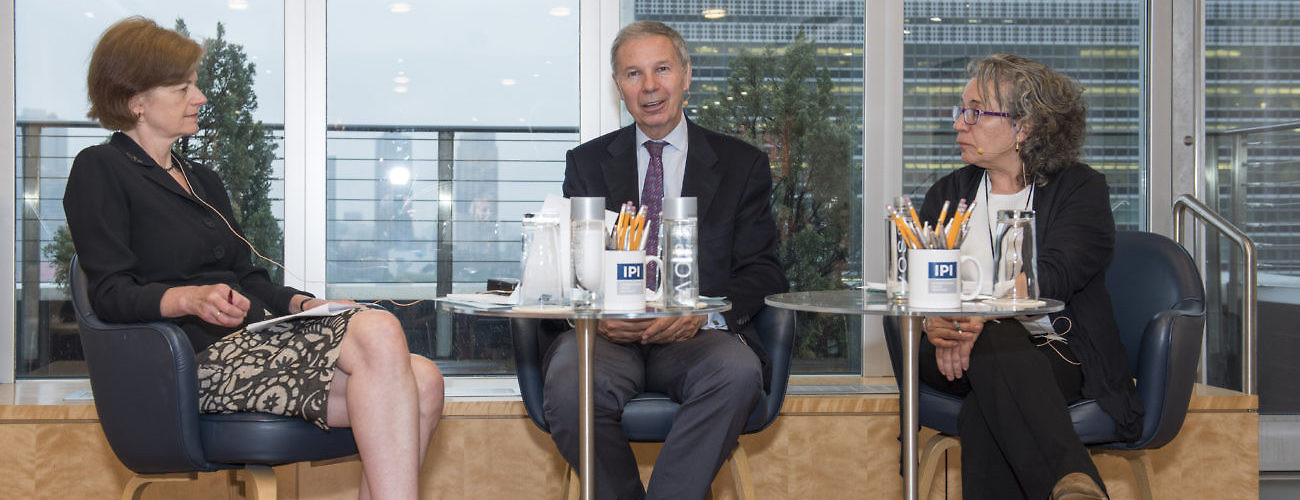An evening discussion among peacebuilders was held at IPI, May 16, 2018, on women’s meaningful participation in negotiating peace and the implementation of peace agreements.
The meeting, convened by UN Women and IPI, brought together internationally recognized peacebuilders, officials from the United Nations, diplomats, and representatives of civil society. The event was held as part of an Expert Group Meeting (EGM) convened by UN Women in preparation for the Secretary-General’s annual report on women, peace and security, expected in October.
Teresa Whitfield, Director of the Policy and Mediation Division at the United Nations Department of Political Affairs, said that the meeting built upon the work these stakeholders have undertaken thus far to explore what makes women’s participation “meaningful” in the context of negotiating peace. She reminded participants that the Secretary-General’s report last year unequivocally stated, “inclusive processes should be the rule, not the exception.”
The EGM participants have worked to support joint strategizing to overcome the persistent barriers to inclusion, representation, and meaningful participation. The international community must continue to articulate ways of moving beyond words to action in implementation of women, peace and security commitments, she said.
The conversation was seen as one of the preliminary steps on the “collective road” to 2020, the year in which the landmark Security Council resolution 1325 will observe its 20th anniversary.
Ms. Whitfield moderated a panel discussion between Jean-Marie Guéhenno, President & CEO of the International Crisis Group, and member of the UN Secretary-General’s High-Level Advisory Board on Mediation; and Rosa Emilia Salamanca, Director, Institute for Social and Economic Research and Action. Ms. Salamanca addressed inclusivity in the Colombian peace process and gender-sensitive peace agreements.
Overarching themes that emerged from the discussion included the need for meaningful participation of women in decision-making positions in all efforts to end conflict, including formal peace negotiations, as well as power sharing, disarmament and ceasefire arrangements, humanitarian access agreements and implementation mechanisms; women in leadership roles in negotiation teams; delivering on the commitment to civil society inclusion in mediation processes; the essential role of international community in the transition phase to support the implementation of gender-relevant provisions; and the importance of gender sensitive provisions in agreements for gender responsive implementation.
IPI Vice President Adam Lupel, and Paivi Kannisto, Chief, Peace and Security Section, UN Women delivered the opening remarks.








